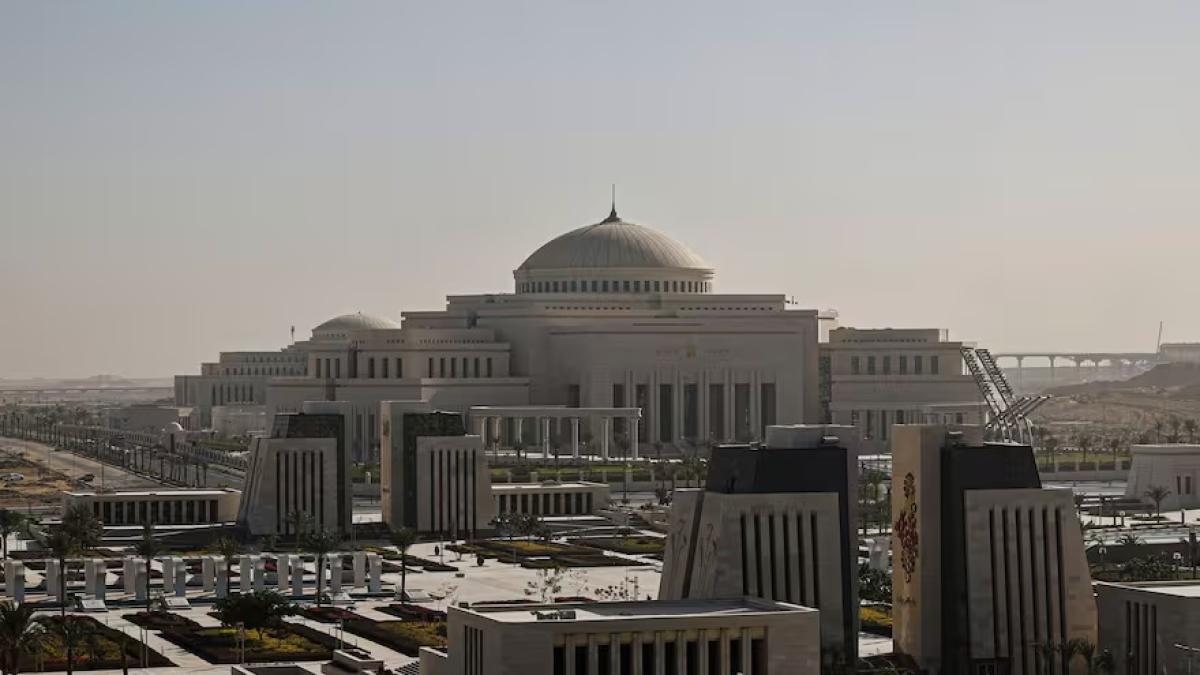President Abdel Fatah al-Sisi was sworn in in Parliament on Tuesday to begin his third term, marking the beginning of a new chapter for both his leadership and Egypt, the most populous Arab country.
The ceremony, which took place in the newly inaugurated New Administrative Capital, symbolizes an ambitious project by Al-Sisi that seeks to decongest Cairo, currently home to 22 million people, by moving the main state institutions to this new location.
The New Administrative Capital project, built in a desert area east of Cairo, includes a presidential palace and a new Parliament building.
With an investment of 58 billion dollars, This megacity is expected to not only house state institutions but also attract a growing population, in line with Al-Sisi's efforts to boost economic development and relieve congestion in the current capital.
During his speech in the new Parliament, Al-Sisi reflected on Egypt's recent challenges, including terrorist attempts and global crises, reiterating his commitment to nation-building.
“Recent years have shown that the path of nation-building is not paved with roses,” he emphasized, pledging to continue development and increase spending on programs for the poor with help from the private sector. This approach has been crucial in securing a recent $8 billion deal with the International Monetary Fund.
What is slow is the construction of the new administrative capital of Egypt. Images of the Iconic Tower under construction (it will be the tallest building in Africa) and a night view of the new Ministry of Defense. Awesome. 🇪🇬🏗 pic.twitter.com/vW8denWiA4
— Nicolás Deza (@NicolasDeza) September 24, 2022
Since taking power in 2014, Al-Sisi has led an infrastructure splurge that includes, in addition to the new capital, the expansion of the Suez Canal and the construction of new roads and cities.
However, these projects have been criticized for contributing to the country's economic problems, diverting resources from more pressing needs and increasing the national debt.
🕌 The “new” administrative capital of #Egypt.
👉 In 2016 work began on a modern city 48 kilometers east of #Cairo to decentralize the administrative level of the Egyptian capital. pic.twitter.com/pyNE04Kjjc
— Topic (@topic_media) March 21, 2024
In power for a decade, the 69-year-old former marshal faces criticism for his handling of human rights, with accusations of mass arrests of political opponents.
However, his victory in December's presidential election with 89.6% of the vote underscores strong domestic support, despite the economic challenges facing the country, including 40% inflation in 2023, currency shortages and the devaluation of the Egyptian pound.
He attended the Inauguration of the President of Egypt HE Abdel Fattah El Sisi at the new headquarters of the National Assembly in the New Administrative Capital. President Sisi begins a third 6-year term. pic.twitter.com/kLCvaZP7BP
— EmbaCubaEgipto (@EmbaCubaEgipto) April 2, 2024
This new mandate, which will extend until 2030 thanks to constitutional amendments, could be the last for Al-Sisi under the current Constitution. As Egypt, a key ally of the West in the Middle East, moves forward under his leadership, the world is watching closely to see how these developments will influence the future of the country and its people.
More news
*This information was rewritten with the assistance of artificial intelligence based on information from AFP and La Nación de Argentina (GDA) and was reviewed by a journalist and an editor.
#Egypt #inaugurated #capital #pharaonic #development #middle #desert

Leave a Reply